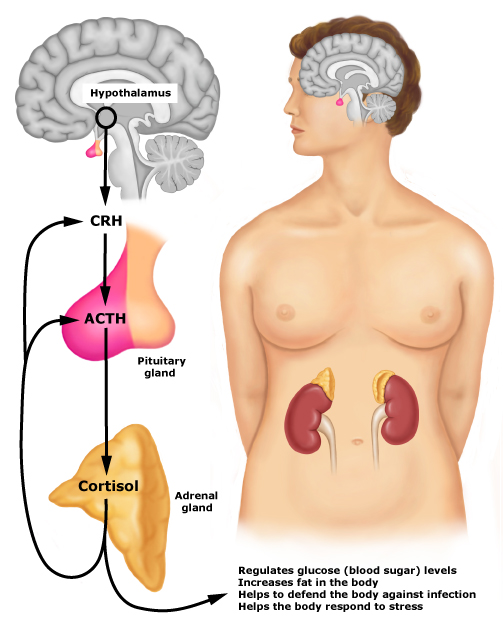 95% of my patients are absolutely stressed out. Our lives these days are taxing and busy, our jobs too demanding, our “ fun ” extracurricular activities not fun but hectic, and our sleep disturbed with the challenge and push to get less and less sleep to do more and more.
95% of my patients are absolutely stressed out. Our lives these days are taxing and busy, our jobs too demanding, our “ fun ” extracurricular activities not fun but hectic, and our sleep disturbed with the challenge and push to get less and less sleep to do more and more.
As I recently posted, B-12 is a vitamin that many discover when trolling the internet for its fantastic benefits like improving fatigue. However, it doesn’t always work. Why ?
The Small but Mighty Adrenal Glands
Our adrenal glands are two small triangle-shaped glands that sit on top of our kidneys. Bet you didn’t know that ! I had no idea what they were talking about in neuroscience class when I first learned about them ! The adrenal glands are part of what is called the hypothalamic–pituitary–adrenal axis—they are the backbone of our hormonal system and the signaling that goes on in our body between our brain and the rest of the body.
The adrenal glands are incredibly important in that they synthesize most of our hormones. The outside of the gland, or the cortex, makes hormones like cortisol (our daytime hormone), all of our sex hormones ( estrogen, progesterone, testosterone ), and a hormone called aldosterone that is related to the kidneys ( another story for another day ). The inner part of the gland, or the medulla, makes epinephrine and norepinephrine or our flight-or-fight hormones and with cortisol helps us get through stressful periods ( basically they decide when we should rise to the occasion in a stressful event, or when it is appropriate to sit back and relax ).
My focus of conversation today will be about this fight-or-flight and then relaxation response that the adrenal glands can induce. You will all be familiar with the signs that the adrenal gland is in action, and I’ll paint a picture for you to get familiar with the body sensations:
You’re camping up north in Algonquin park and you hear rustling through the trees. At the end of a clearing, you spot a large bear behind you. Not knowing if you are supposed to run or stay still, you race in the opposite direction. Your heart is pounding ; the hunger you felt a minute ago is completely gone. Your eyes feel more sharp, you feel agile, and you are breathing, hard.
After running for 5 minutes and not looking back, you realize your one of your friends put on a bear costume. You’re annoyed, but you start to calm down. You look down, and you realize your legs have small cuts all over them that you did not feel when you were running (immune system suppresses during stress so you don’t feel pain). You are suddenly ravenous and you need to use the washroom urgently (digestion and bodily functions are put on hold). You are overwhelmed with fatigue.
The adrenal gland allows us to rise to the occasion in the face of a stressful event, and then calms as we are recovering from that stress.
What if your body can no longer tell the difference between running from an actual bear, or the bear that is running around in your mind? Virtual bears could be your terrible boss, your stressful commute, your three children who all wake up screaming at 3 am, or a stressful family event that occurs every month that you dread. Worse, you experience many of these scenarios all at the same time.
There are nutrients that the adrenal gland needs when it goes through stress-support and stress-recovery, and these nutrients can be depleted easily. Vitamin B5 or pantothenic acid is a major support to the adrenal gland, as is vitamin C. However, with years of stress, these vitamins are not often enough.
There are many herbs that can help the adrenal gland that can be very effective, provided you are taking the right one for your personality and body. Absorb some of this information, and look for further adrenal-supportive herbs to come.